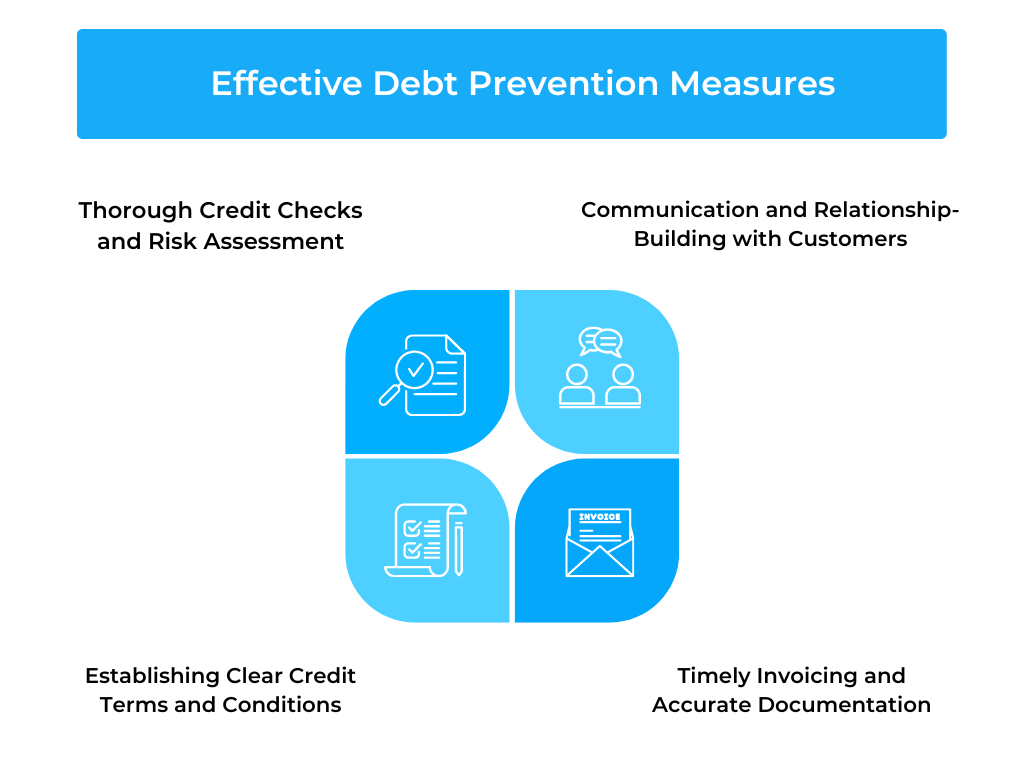Proven Debt Recovery Strategies for Business’s Financial Success
Introduction

Debt recovery is a critical aspect of maintaining a healthy and sustainable financial ecosystem for businesses of all sizes. When customers or clients fail to meet their payment obligations, it can have far-reaching consequences that extend beyond immediate cash flow issues. For businesses, both large and small, the ability to recover debts is vital to ensure continuity, growth, and financial stability. Successful debt recovery not only helps in retrieving outstanding payments but also preserves valuable resources that can be reinvested in core business operations. Moreover, it allows companies to uphold their commitment to vendors, employees, and other stakeholders, fostering a reputation for reliability and trustworthiness within the industry.
Impact of Unpaid Debts on Business Financial Health
The repercussions of unpaid debts on a business’s financial health can be profound and multifaceted. Insufficient funds due to unpaid invoices or overdue payments can disrupt day-to-day operations, hinder expansion plans, and constrain opportunities for investment and innovation. Prolonged debt accumulation may lead to a snowball effect, where businesses struggle to cover their expenses and may even risk insolvency. Beyond the immediate financial strain, unpaid debts can strain business relationships, souring ties with customers and suppliers alike. Additionally, the effort and resources expended in pursuing debts can divert a company’s focus away from its core objectives, impeding overall growth and profitability. Thus, implementing effective debt recovery strategies is not just a financial necessity, but a crucial element in ensuring a business’s long-term success and sustainability.
Effective Debt Prevention Measures

A. Thorough Credit Checks and Risk Assessment
Before extending credit to customers, it is crucial to conduct thorough credit checks and risk assessments. By delving into their credit history, financial statements, and past payment records, businesses can gauge the likelihood of timely payments. This proactive approach allows companies to identify high-risk customers and make informed decisions about the level of credit they are willing to extend, reducing the potential for non-payment and bad debts.
B. Establishing Clear Credit Terms and Conditions
Clear and well-defined credit terms and conditions are essential for preventing debt-related complications. By explicitly outlining payment schedules, due dates, and any penalties or incentives in contracts or agreements, businesses set transparent expectations. Such clarity helps avoid misunderstandings or disputes regarding payments, ensuring that both parties are aware of their responsibilities and obligations from the outset.
C. Timely Invoicing and Accurate Documentation
Timely invoicing is crucial for maintaining a healthy cash flow and minimizing the risk of overdue payments. Businesses should have a streamlined invoicing process that ensures invoices are promptly sent after the completion of goods or services. Alongside timely invoicing, accurate documentation of all transactions is vital. By maintaining detailed records, including payment receipts, communications, and changes to agreements, businesses establish a strong foundation for resolving payment disputes effectively and transparently.
D. Communication and Relationship-Building with Customers
Building strong and open lines of communication with customers can be a game-changer in debt prevention. Regularly engaging with clients to address any concerns, provide updates, and inquire about their satisfaction allows businesses to gain insights into their financial situation and payment capabilities. Establishing a positive and empathetic relationship fosters loyalty and encourages customers to prioritize timely payments. Moreover, proactive communication enables businesses to identify potential payment challenges early on and work collaboratively with customers to find suitable solutions, preventing the escalation of debt issues. By investing in relationships, businesses can foster a culture of trust and cooperation, which ultimately benefits both parties involved in the long run.
Proactive Debt Recovery Techniques
Friendly Reminders and Payment Notifications
Sending friendly and timely reminders to customers before the payment due date can be a proactive way to prevent potential delinquencies. These reminders can be in the form of emails, text messages, or automated notifications, gently prompting customers to settle their outstanding invoices. By employing a courteous approach, businesses can maintain positive customer relationships while encouraging prompt payments.
Structured Payment Plans and Negotiations
In cases where customers are facing financial difficulties, offering structured payment plans can be an effective debt recovery strategy. Collaboratively working with customers to create manageable installment schedules can increase the likelihood of payment without resorting to legal action. Open and empathetic negotiations with customers experiencing hardships demonstrate a willingness to find mutually beneficial solutions, fostering goodwill and cooperation.
Early Intervention through Professional Debt Collection Agencies
For persistent delinquencies, early intervention through reputable debt collection agencies can significantly improve the chances of debt recovery. Professional agencies have the expertise and resources to engage in effective debt collection practices while adhering to legal guidelines. By outsourcing the debt recovery process, businesses can focus on their core operations while increasing the likelihood of successful debt retrieval.
Offering Discounts and Incentives for Early Payments
To incentivize prompt payments, businesses can offer discounts or benefits for customers who settle their invoices before the due date. These incentives can range from percentage discounts to loyalty rewards, motivating customers to prioritize their payments and maintain a positive payment history. Proactive debt recovery techniques not only help businesses retrieve outstanding debts but also contribute to a culture of prompt payments, reducing the overall occurrence of delinquencies. By employing these strategies, companies can foster positive relationships with customers, protect their cash flow, and ensure a healthier and more sustainable financial position in the long run.
Strategies for Dealing with Delinquent Accounts
A. Tactful Communication with Debtor
Engage in open and empathetic communication with delinquent debtors to understand the reasons behind payment delays and the challenges they may be facing. This approach allows businesses to explore potential solutions and establish revised payment plans or negotiations.
B. Legal Actions and their Implications
As a last resort, consider legal action to recover outstanding debts. Before proceeding, seek legal counsel to understand the legal implications and requirements involved in the debt recovery process. This approach ensures compliance with relevant laws while protecting the company’s rights.
C. Preserving Customer Relationships
Balance assertive debt recovery efforts with maintaining professionalism and respect in communication with delinquent debtors. Preserving customer relationships is vital to safeguarding the company’s reputation and fostering a positive business environment.
D. Incentives for Payment Settlements
Offer incentives, such as discounts or benefits, to encourage delinquent debtors to settle their outstanding payments. Providing rewards for early payments can motivate customers to prioritize their dues and improve debt recovery rates.
E. Collaboration with Debt Mediators
Engage the services of debt mediation professionals who can act as neutral intermediaries between businesses and delinquent debtors. These mediators facilitate constructive negotiations and help establish feasible payment arrangements.
F. Structured Debt Repayment Plans
Create structured repayment plans with delinquent debtors that suit their financial capabilities. Establishing installment schedules can make it easier for customers to fulfill their obligations without overwhelming financial strain.
G. Flexibility in Payment Options
Offer flexible payment options, such as online portals, payment gateways, or automatic debits, to accommodate various customer preferences. Providing convenient payment methods encourages timely payments and reduces the likelihood of delinquencies.
H. Escalation Procedures
Define clear escalation procedures for handling prolonged delinquencies. Implement a series of steps, including warnings and collection letters, before resorting to legal action to give debtors opportunities to settle their dues.
Conclusion
Lastly, debt recovery plays a pivotal role in determining the financial success and longevity of businesses. It not only ensures the retrieval of outstanding payments but also safeguards a company’s cash flow, reputation, and stakeholder relationships. By implementing effective debt prevention measures and proactive recovery techniques, businesses can reduce the risk of delinquencies and bad debts while fostering a culture of prompt payments. Furthermore, dealing with delinquent accounts through tactful communication and considering legal actions as a last resort can strike a balance between assertive recovery efforts and preserving customer relationships. Emphasizing the importance of debt management, businesses are encouraged to prioritize these strategies for financial stability and sustainable growth, paving the way for long-term success in today’s competitive business landscape.